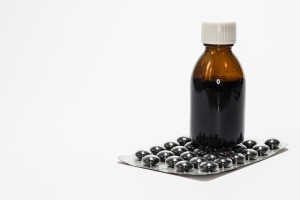1. recipe ![]()

[noun]
[het re-cept, de re-cep-ten]
Feeling hungry? Then put on your "schort" and try a recipe of the Dutch cuisine, which is – as you know – not too ambitious 🙂 Check out this article on Wikipedia for more info on the Dutch cuisine…
"Recept" can also be used figuratively.
Examples:
– "Schat, wat eten we vanavond?" – "Ik weet het niet, ik zat te denken aan een recept van Jamie Oliver."
("Honey, what’s for dinner tonight?" – "I don’t know, I was thinking a Jamie Oliver recipe." Lit.: "Honey, what are we eating tonight?")
– "In de krant van vandaag staat een recept voor een lekkere stoofpot."
("In today’s newspaper there’s a recipe for a nice stew.")
Expressions:
–
"Wat de boer niet kent, dat eet hij niet": I know what I like, and I like what I know (Lit.: "what the farmer doesn’t know, he doesn’t eat". Used when you refuse to eat something you don’t know).
– "Eten wat de pot schaft": to eat what there is (Lit.: "to eat what the pot provides").
– "Smakelijk eten!": bon appetit!
Related words:
– Koken: to cook/boil [verb] [koken, kookte, h. gekookt].
– Schort: apron [noun] [de/het schort, de schorten].
Example:
– "Er zit een vlek
op mijn schort."
("There’s a
stain on my apron.")
2. prescription, recipe ![]()
[noun]
[het re-cept, de re-cep-ten]
A "recept" can also be a prescription, prescribed a doctor. A recipe for getting better, so to speak…
Actually, the verb "to prescribe" translates to "voorschrijven" (voor=pre, schrijven=to scribe/write) in Dutch. When a doctor prescribes a recipe, this would translate to "een recept voorschrijven". In this context, you can also use the synomous "uitschrijven" (lit.: to write/scribe out).
Examples:
– "Ik heb de griep…" – "Heb je al een recept bij de dokter gehaald?"
("I’ve got the flu…" – "Have you already gotten a prescription from the doctor?")
– "Dokter, dokter, ik heb last van een zware verliefdheid…" – "Sorry meneer, daar heb ik geen recept voor, u bent verslaafd aan de liefde…"
("Doctor, doctor, I’ve got a bad case of loving you…" – "I’m sorry sir, I don’t have a recipe for that, you’re addicted to love…")
Related words:
– Griep: flu [noun] [de griep, de griepen].
– Ziek: sick, ill [adjective].
Example:
– "Je ziet er slecht uit. Ben je ziek, of heb je gewoon een kater?"
("You
look bad. Are you ill, or are you just having a hangover?")
– Verkoudheid: cold [noun] [de verkoudheid, de verkoudheden].
– Dokter: doctor [noun] [de dokter, de dokters].
– Arts: doctor, physician [noun] [de arts, de artsen].
– Huisarts: GP, general practitioner (lit. house doctor) [noun] [de huisarts, de huisartsen].


 “Opstaan” is composed of “op” and “staan”, which respectively translate to “up” and “stand”.
“Opstaan” is composed of “op” and “staan”, which respectively translate to “up” and “stand”.
 to cough
to cough